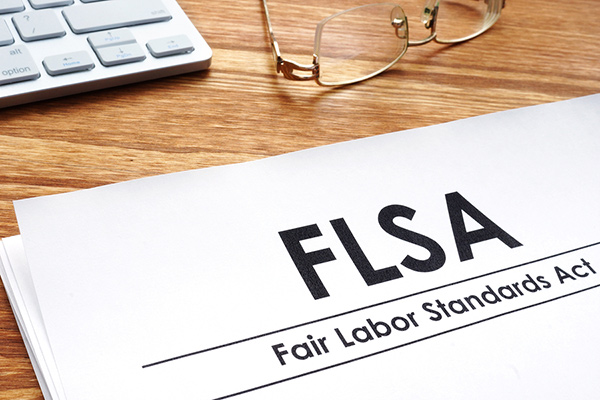
The Fair Labor Standards Act (FLSA) establishes federal requirements for minimum wage ($7.25 per hour) and overtime payments to employees (those who work more than 40 hours in a workweek). The FLSA states that employers must comply with established rules that dictate whether employees are classified as exempt from the ability to earn overtime pay. The two primary tests to determine exemption from overtime are:
1) Duties Test – Employees are exempt if they meet the criteria for the following categories.
- Executive
- Administrative
- Professionals
- `Outside sales
- Computer
2) Income Test – The employee must earn over $455./week or $23,660./year
It is important to note however, that the key consideration of the Duties Test is NOT the title, but the specific duties assigned to that role. Consideration is given to whether there is supervisory responsibility, whether the job requires specialized education or training, and how much independent judgement is exercised in the role.
A new federal proposal, currently under review, would raise the salary threshold to $679./week or $35,308./year.
Lawsuits against employers claiming violations of the FLSA are some of the most common.
- If an employer is found to have mischaracterized an employee as exempt, the employer may be determined to owe employees back wages and suffer the potential to be exposed to the following remedies:
*conciliation
*injunction
*criminal action
*civil action by employees
Willful violations of the FLSA may be prosecuted criminally and fined up to $10,000. A second violation may result in imprisonment.
Protect yourself by ensuring your employee categorizations are accurate and up to date. Seek professional HR advice and/or legal counsel.
